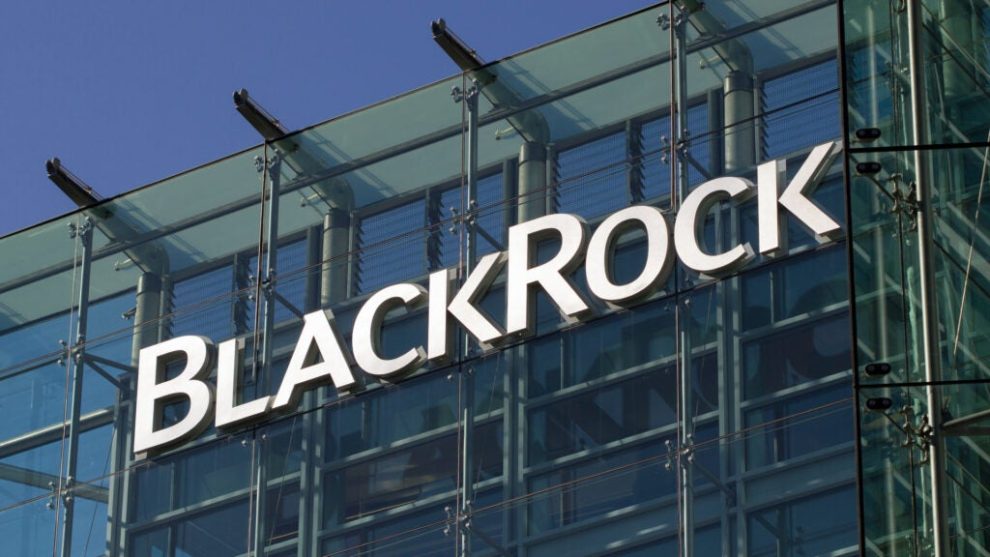Global investment giant BlackRock has announced being “overweight” on inflation-linked bonds, signaling a strategic shift to mitigate risks stemming from “persistent inflation pressure” and growing concerns over the sustainability of U.S. government finances.
What Happened: This move comes as the firm navigates a complex economic landscape characterized by transformative “mega forces” and a challenging outlook for long-term asset allocation.
A key driver for BlackRock’s pivot to inflation-linked bonds is the mounting pressure on U.S. fiscal sustainability.
The firm specifically cited Moody’s recent downgrade of the U.S. government’s top-notch credit rating, which reinforced BlackRock’s long-standing concerns about persistent U.S. budget deficits, particularly as rising interest rates escalate debt servicing costs.
The note also highlights how the U.S. debt sustainability relies on large and steady funding by foreign investors.
“The downgrade reinforces the U.S. fiscal sustainability challenge that we’ve long flagged, especially persistent U.S. budget deficits at a time when higher interest rates are boosting debt servicing costs. If these dynamics dent the confidence of foreign bond holders, rising term premium could push up bond yields and debt servicing costs even more,” explained BlacRock in its note.
Consequently, BlackRock’s strategic starting point now incorporates an expectation of rising term premiums for U.S. Treasuries and persistent inflation.
“That’s why our starting point also includes our expectation of rising term premium for U.S. Treasuries and persistent inflation pressure. We go overweight inflation-linked bonds and neutral global investment grade credit given wider spreads,” the note stated.
These securities are designed to protect investors from inflation by adjusting their principal value based on changes in the Consumer Price Index (CPI), ensuring that the real value of the investment is preserved.
Why It Matters: For investors seeking exposure to this strategy, a few of the inflation-linked bond ETFs available include:
| Inflation-Linked Bond ETFs | YTD Performance | One Year Performance |
| Vanguard Short-Term Inflation-Protected Securities ETF VTIP | 3.03% | 3.68% |
| iShares TIPS Bond ETF TIP | 2.04% | 2.21% |
| Schwab U.S. TIPS ETF SCHP | 2.44% | 2.05% |
| iShares 0-5 Year TIPS Bond ETF STIP | 1.79% | 3.15% |
| FlexShares iBoxx 3-Year Target Duration TIPS Index Fund TDTT | 1.99% | 2.29% |
| SPDR Bloomberg 1-10 Year TIPS ETF TIPX | 2.49% | 2.87% |
| SPDR Portfolio TIPS ETF SPIP | 1.85% | 1.22% |
| FlexShares iBoxx 5-Year Target Duration TIPS Index Fund TDTF | 2.41% | 2.10% |
| PIMCO 15+ Year US TIPS Index ETF LTPZ | -0.90% | -4.69% |
| PIMCO 1-5 Year US TIPS Index ETF STPZ | 2.23% | 3.88% |
“Economic transformation makes long-term portfolio construction more challenging,” BlackRock concluded, emphasizing its new approach of utilizing a starting point scenario for strategic views while formally tracking other potential outcomes to ensure portfolio agility.
While U.S. assets remain central to their portfolios, the move into inflation-linked bonds underscores a proactive stance against emerging fiscal and inflationary headwinds.
Price Action: The SPDR S&P 500 ETF Trust SPY and Invesco QQQ Trust ETF QQQ, which track the S&P 500 index and Nasdaq 100 index, respectively, rose on Monday. The SPY was up 0.11% to $594.85, while the QQQ advanced 0.096% to $522.01, according to Benzinga Pro data.
On Tuesday, the futures of the S&P 500, Dow Jones, and Nasdaq 100 indices were trading slightly lower.
Read Next:
Disclaimer: This content was partially produced with the help of AI tools and was reviewed and published by Benzinga editors.
Photo courtesy: Tada Images / Shutterstock.com




Add Comment